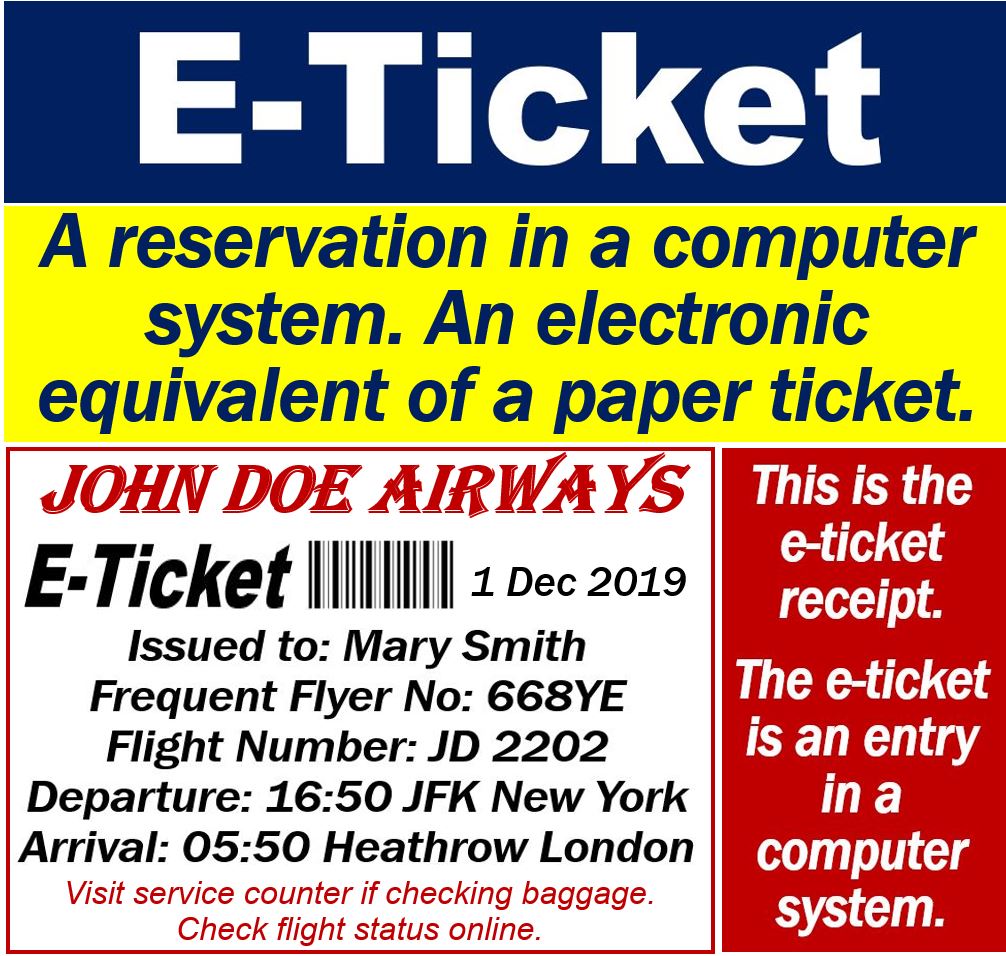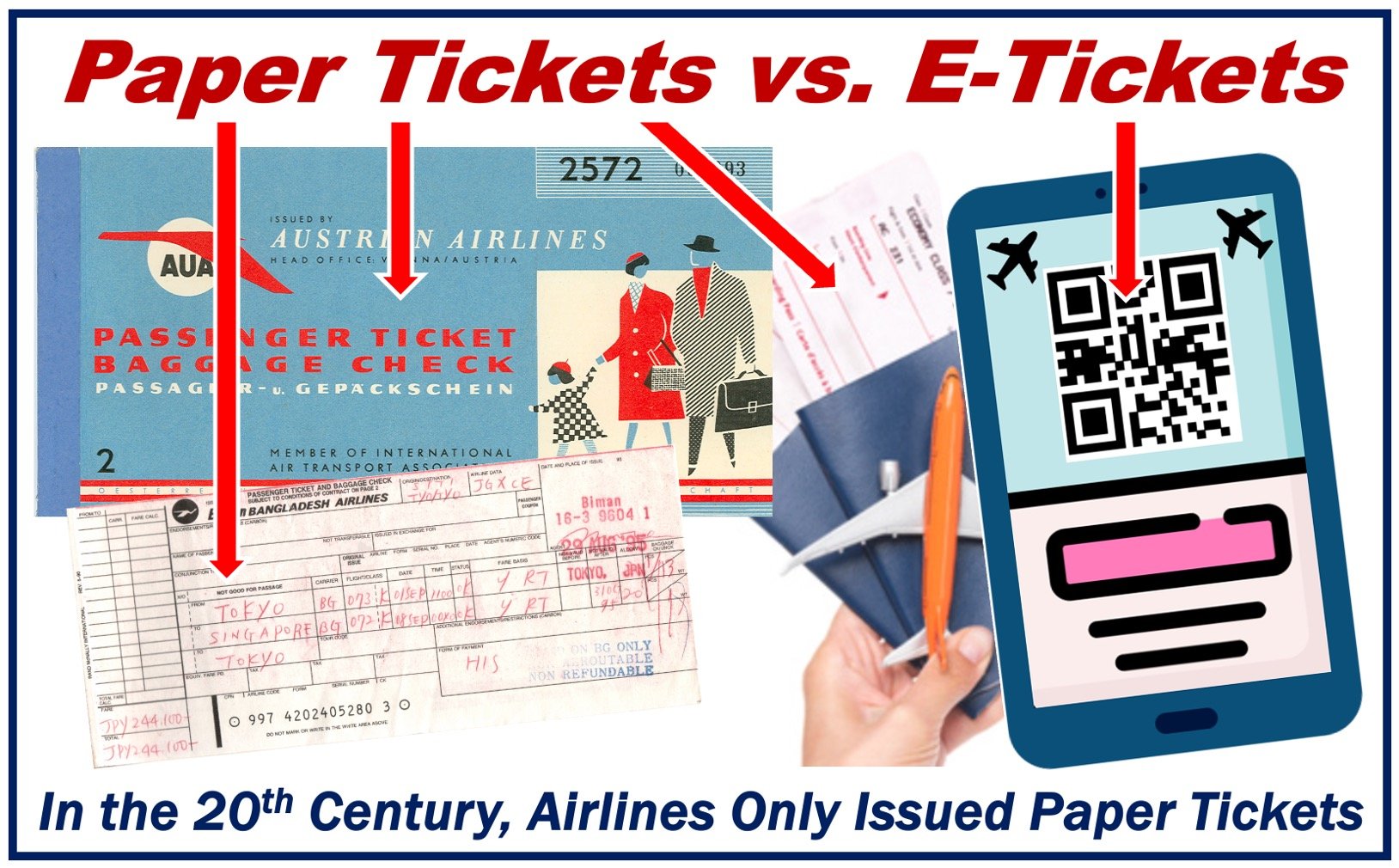An E-Ticket is a Digital Ticket that is as valid as a paper ticket, i.e., it is the equivalent. It is an electronic ticket that gives the holder the right to travel or attend an event. Although we associate the term ‘e-ticket’ with flight tickets that airlines issue, it could mean any ticket we buy online. Specifically, any ticket we buy for which there is no issuing of a paper ticket.
In addition to travel and event access, e-tickets are now expanding into other domains, such as public transportation and theme parks, allowing for seamless entry and reduced wait times at entry points.
An e-ticket that an airline issues is a reservation in its computer system. It tells them that they have confirmed somebody’s seat on a specific flight.

E-ticket receipt
When an airline issues an e-ticket, it also gives us a receipt. We can print that receipt. Often, their format is similar to the old style paper tickets. However, it is only a receipt. We do not need to present it at the check-in counter.
However, if there is a dispute, the receipt serves as proof that the airline issued the e-ticket.
E-ticket hard copy
When e-tickets first came out, many people felt uneasy about arriving at the airport with no physical document. Therefore, airlines often sent a hard copy of the electronic ticket in the post.
Most airlines do not do that anymore. However, if you ask for a hard copy, they will probably send you one.
Nevertheless, you do not need to take anything with you to the front desk, except for your passport or ID. When you present your ID, the airline will give you a boarding pass.
E-ticket saves money
The main advantage of electronic ticketing for the issuer is that it reduces the cost of booking. Printing documents and then posting them costs money.
Another advantage, both for the purchaser and issuer, is that the document cannot get lost or damaged in the post. Neither is there a risk of sending it to the wrong address.
However, if a hacker gets into the airline’s computer system, the e-ticket could ‘disappear.’
Brief history
The term “e-ticket” was first used at Disneyland and Magic Kingdom in the US in the early 1980s. It was a designation for a type of admission ticket that allowed bearers onto the most advanced or popular rides and attractions.

In the airline industry, IATA’s push to switch to 100% electronic ticketing resulted in a rapid transition, which was completed by May 31, 2008. After this date, paper tickets were largely phased out.
Other industries soon followed, including movie theaters, concert venues, train services, public buses, and sports events. Additionally, the use of e-tickets has expanded to include festivals, trade shows, and even parking services. This digital evolution has streamlined the ticketing process across various sectors
